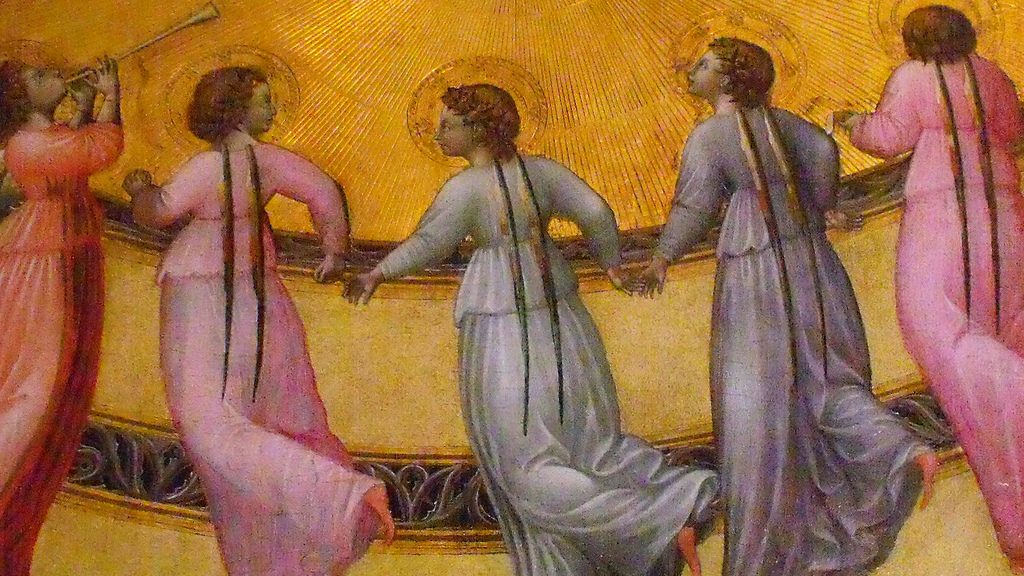Glory to God in the Highest!
Moving along in our study of the new English translation of the Mass, we will look next at the Gloria. Again, we will compare the current English translation with the Latin original, followed by the new English translation.
Glory to God in the highest, and peace to his people on earth. Lord God, heavenly King, almighty God and Father, we worship you, we give you thanks, we praise you for your glory.
Lord Jesus Christ, only Son of the Father, Lord God, Lamb of God, you take away the sin of the world: have mercy on us; you are seated at the right hand of the Father: receive our prayer. For you alone are the Holy One, you alone are the Lord, you alone are the Most High, Jesus Christ, with the Holy Spirit, in the glory of God the Father. Amen.
Glória in excélsis Deo et in terra pax homínibus bonae voluntátis. Laudáumus te, benedícimus te, adorámus te, glorificámus te, grátias ágimus tibi propter magnam gloriam tuam,Dómine Deus, Rex caeléstis, Deus Pater omnípotens. Dómine Fili unigénite, Iesu Christe, Dómine Deus, Agnus Dei, Filius Patris, Qui tollis peccáta mundi, miserere nobis; Qui tollis peccáta mundi, súscipe deprecatiónem nostrum. Qui sedes ad déxteram Patris, miserere nobis. Quóniam tu solus Sanctus, Tu solus Dóminus, Tu solus Altíssimus, Iesu Christe, cum Sancto Spíritu: In glória Dei Patris. Amen.
Glory to God in the highest, and on earth peace to people of good will. We praise you, we bless you, we adore you, we glorify you, we give you thanks for your great glory, Lord God, heavenly King, O God, almighty Father.
Lord Jesus Christ, Only Begotten Son, Lord God, Lamb of God, Son of the Father, you take away the sins of the world, have mercy on us; you take away the sins of the world, receive our prayer; you are seated at the right hand of the Father, have mercy on us. For you alone are the Holy One, you alone are the Lord, you alone are the Most High, Jesus Christ, with the Holy Spirit, in the glory of God the Father. Amen.
We notice right at the beginning the addition of the phrase “of good will.” This is a direct translation of the Latin bonae voluntátis, which is entirely missing from our current translation. It hearkens back to Luke’s Gospel, when the Angel of the Lord announces the birth of Christ with those words, and so this new, more accurate translation brings back the Scriptural reference more accurately.
My favorite part of the new Gloria translation is “We praise you, we bless you, we adore you, we glorify you…” This rhythmic structure more closely follows the cadence of the Latin. Laudáumus te, benedícimus te, adorámus te, glorificámus te… It is poetry; it has a special cadence to it which ought to be respected as much as possible in the translation. That’s not always possible, so I am glad that they have recaptured it here.
Notice, too the repetition of the phrase “you take away the sins of the world.” It is repeated twice in the Latin – qui tollis peccáta mundi. And now it is repeated in the English, as well. As I mentioned in the last installment, when words or phrases are repeated it is for emphasis. If we are going to emphasize our own culpability and sinfulness, as we did in the Penitential Rite, we cannot neglect to also emphasize the saving power of our Lord.
One cause for concern that many have expressed has to do with the music we sing at Mass. In most parishes, the Gloria is sung rather than recited. As it should be! If you attend a Mass where the Gloria is sung in Latin, then you have nothing to be concerned with, as the Latin text will not be changing with the new edition of the Missal.
However, if you sing the Gloria in English, as most US parishes do, then you will indeed be learning a new musical setting for the Gloria. And having to learn new music as well as new words may seem to some to be twice the challenge! (Although one can make the argument that setting the words to music actually makes them easier to remember.)
Nevertheless having to learn a new sung part of the Mass will definitely be a major transition for many, and so to help smooth the process along many bishops in the US, our own included, have granted permission for the sung parts of the new Missal to be used as early as September of this year.
The US Bishop’s Conference and the International Commission of English in the Liturgy (ICEL), as well as other groups dedicated to liturgical music, such as the Church Music Association of America, have made available for free download musical settings for the sung parts of the new Mass translation. And many other liturgical musicians are working on composing new scores.
It is not only the Gloria that is changing. In the Sanctus, instead of singing “Holy, Holy, Holy Lord God of power and might,” we will now instead sing, “Holy, Holy, Holy Lord God of hosts.” And the Mystery of Faith will also change somewhat. Now instead of four options there are three, which are slightly different from what we sing now.
So if you attend a Mass where some or all of the above is sung in English, get ready for something a bit different. And don’t be afraid to sing along!

